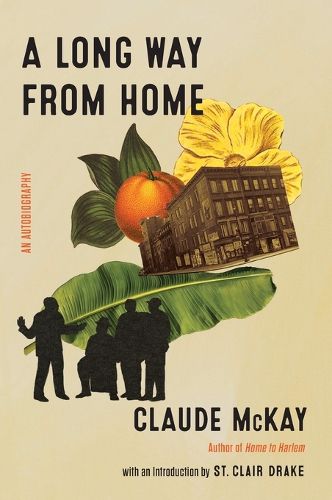Readings Newsletter
Become a Readings Member to make your shopping experience even easier.
Sign in or sign up for free!
You’re not far away from qualifying for FREE standard shipping within Australia
You’ve qualified for FREE standard shipping within Australia
The cart is loading…






From one of the most significant figures of the Harlem Renaissance comes a narrative defining book chronicling his life from Jamaica to New York City
Claude McKay's long odyssey from Jamaica to Harlem, Europe, North Africa, Russia, and back to America is chronicled in this autobiography of the most militant writers to emerge from the New Negro movement following World War I. Whether in the intellectual circles of Harlem and Greenwich Village, the docks of Marseilles, or the inner circles of post-revolutionary Russia, McKay's contact with such figures as Frank Harris, Max Eastman, George Bernard Shaw, W.E.B Dubois, James Weldon Johnson, Charles Chaplin, H.G Wells, Sinclair Lewis, Trotsky, and Radek all served to advance those views which would be so widely accepted in the 1960--Black Pride, self-determination, and the necessity for Black culture to define itself.
$9.00 standard shipping within Australia
FREE standard shipping within Australia for orders over $100.00
Express & International shipping calculated at checkout
From one of the most significant figures of the Harlem Renaissance comes a narrative defining book chronicling his life from Jamaica to New York City
Claude McKay's long odyssey from Jamaica to Harlem, Europe, North Africa, Russia, and back to America is chronicled in this autobiography of the most militant writers to emerge from the New Negro movement following World War I. Whether in the intellectual circles of Harlem and Greenwich Village, the docks of Marseilles, or the inner circles of post-revolutionary Russia, McKay's contact with such figures as Frank Harris, Max Eastman, George Bernard Shaw, W.E.B Dubois, James Weldon Johnson, Charles Chaplin, H.G Wells, Sinclair Lewis, Trotsky, and Radek all served to advance those views which would be so widely accepted in the 1960--Black Pride, self-determination, and the necessity for Black culture to define itself.